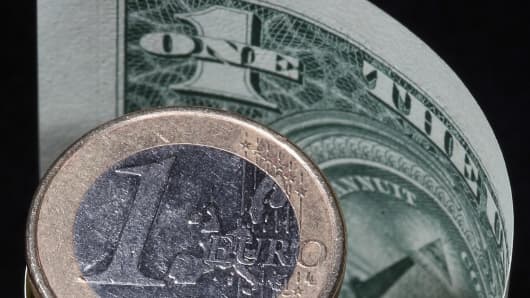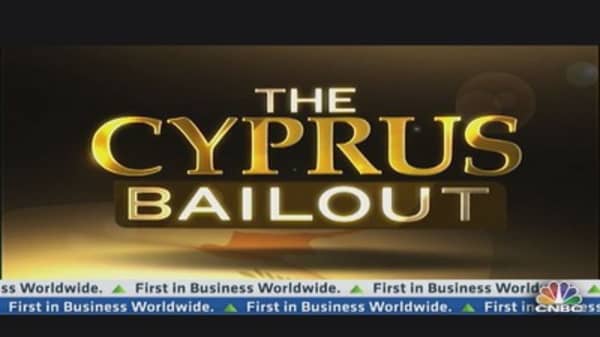The U.S. central bank's meeting came as turmoil in Europe took another turn for the worse. Cyprus ordered banks to stay shut until next week as the government scrambled to come up with another plan after rejecting the terms of a bailout from the European Union.
(Read More: Cyprus Considers Money Lockdown, Russia Aid)
Omer Esiner, chief market analyst at Commonwealth Foreign Exchange in Washington, said the Fed's pledge to keep its foot on the gas pedal of monetary easing, while inherently negative for the dollar, should help the U.S. economy outpace its major rivals.
"The resulting upside for U.S. assets should continue to spur demand for the greenback," he said. "Moreover, the mounting uncertainty in the euro zone continues to contrast the improving backdrop in the U.S. and should add to the dollar's appeal as a safe harbor from political and economic volatility abroad."
Against the dollar, the euro rose 0.4 percent to $1.2917, rebounding from $1.2843 set on Tuesday, it's lowest since late November.
Analysts said the euro benefited from expectations European leaders will eventually find a solution to the Cyprus crisis, and noted there were few signs of instability in the bond markets of Spain and Italy.
Cyprus announced an unprecedented plan to impose taxes on citizens' savings over the weekend, sparking fears that larger European countries such as Spain and Italy might do the same should they need financial aid.
Stephen Jen, a managing partner at London-based hedge fund SLJ Macro Partners in London, said while the Cypriot decision set a dangerous precedent for Europe, this episode has not triggered bank runs elsewhere in Europe.
"To the extent that the case of Cyprus sets an example for the governments and the regulators in the peripheral countries, more care may be exercised now to reduce the chances of these countries finding themselves in a similar situation as Cyprus."
Some strategists said the European Central Bank's assurance on Tuesday that it was committed to providing liquidity to Cypriot banks within certain limits also helped the euro.




